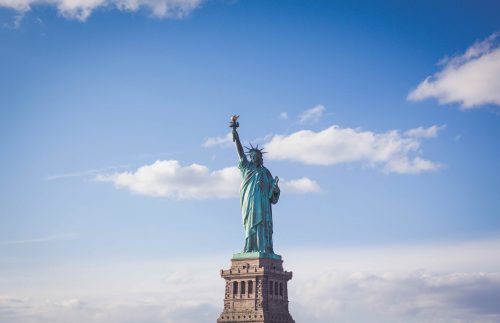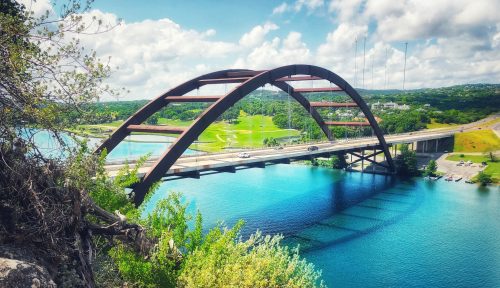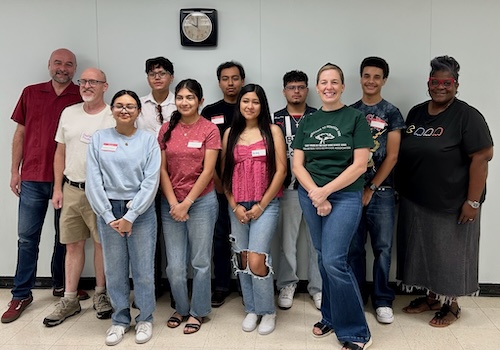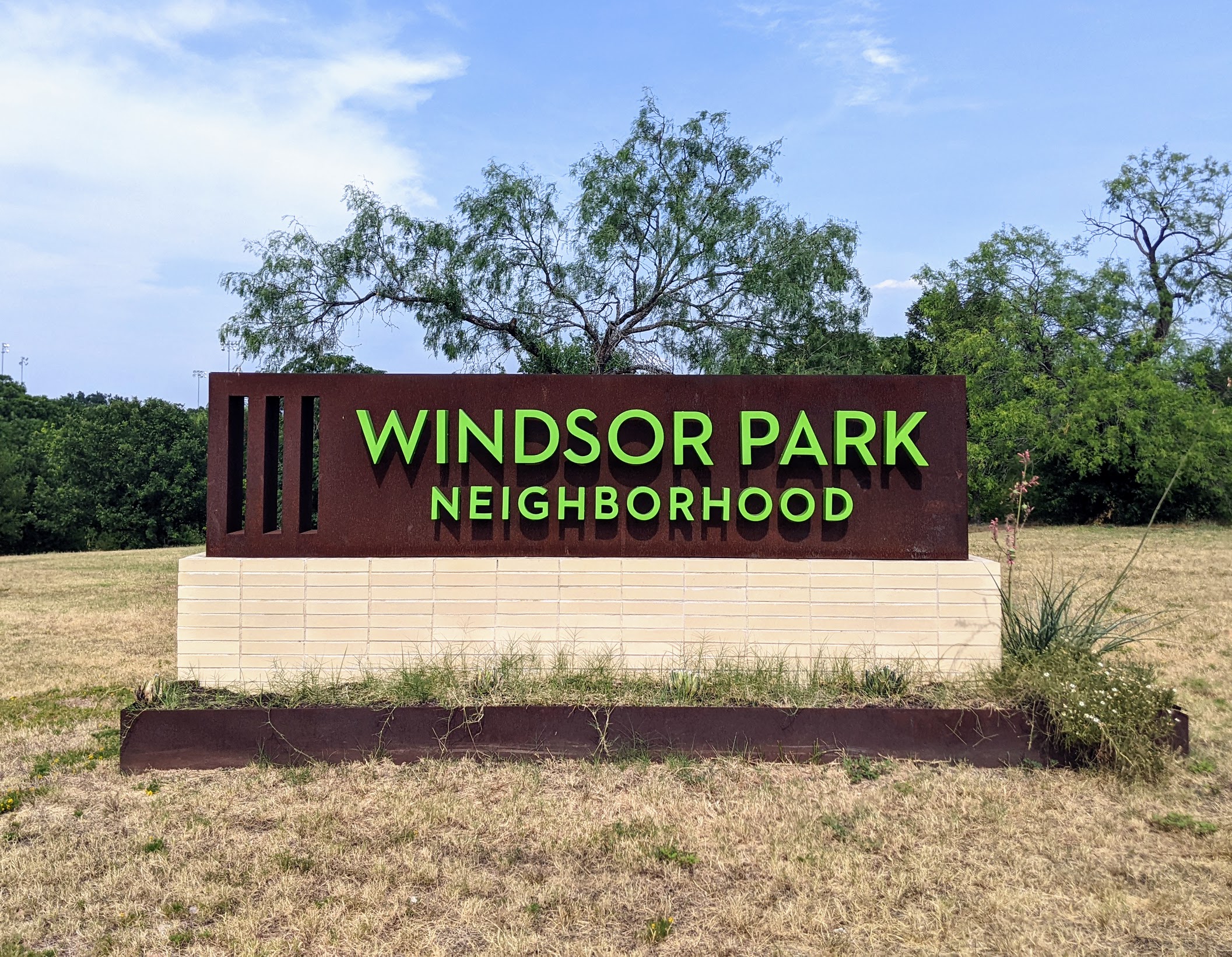
by Martin Luecke and the Windsor Park Climate Crisis Committee
The Climate Change and Global Warming Resolution passed by unanimous vote at the May WPNA meeting. It’s the first time in America that a neighborhood association has taken an official stand on climate policy.
The resolution asks that all elected officials who represent Windsor Park please take immediate action in their respective offices and jurisdictions to make policy to adapt 100% renewable energy by 2030. This sense of urgency comes from the recent report by the Intergovernmental Panel on Climate Change (IPCC), which states that humankind has less than 12 years to make significant changes in fossil fuel use.
At first blush this seems like a daunting, if not impossible, task. But if you break it down, it becomes clear that we can actually do something in our own households, changing habits, buying different products, and reducing our collective carbon footprint. It’s like WWII, when everyone was asked to give up their scrap metal and rubber inner tubes and nylon stockings to the war effort. The sacrifices were personal and necessary, but everyone was invested in the outcome, which was to save the world from ruin and destruction.
Today the stakes are much higher. Your participation is required. The climate change committee has put together a list of things to do in your household. This is not in order of importance.
1. Sign up for the City of Austin’s GreenChoice renewable energy plan (512-494-9400, austinenergy.com)
2. Install LED lighting equipment and bulbs throughout your house
3. Replace your gas powered lawn equipment with electric
4. Avoid driving gasoline powered vehicles whenever possible – walk, bike, carpool, ride bus
5. Reduce driving by doing multiple errands on one trip
6. Buy a hybrid or electric car, if you are not using even lower-carbon transport
7. If you are a household with more than one car, at least one of them should be electric
8. Reduce your consumption of meat
9. Reduce air travel
10. Turn thermostat up in summer, down in winter
This is just a partial list, but it represents an enormous amount of carbon over time, and coupled with new government policy, and applied science, there is hope of averting catastrophe for our children. We will discuss climate change bills filed in US Congress in next month’s issue.
The Climate Change Committee asks that every resident of Windsor Park please do the list as soon as possible, ideally in one year. If our 3500 households all participated, the carbon reduction would be formidable. And a program like this is contagious. Already, three committee members visited Mueller Neighborhood Association and shared WPNA’s resolution with them. Their members said they were inspired, and several signed up to work on something similar for MNA. Imagine 80 more neighborhoods in Austin following suit. And then 80 more cities, and 80 more countries. If you do the math to its conclusion, you will arrive at a very large reduction in fossil fuel use, mostly from people just changing what they buy.
We ask that you use the power of your wallet to create change. It’s the only thing global corporate industry will understand. If we stop buying gasoline powered engines, manufacturers will stop selling them.
What other ideas do you have on how we in Windsor Park can take action against climate change? Please contact me at mwluecke@hotmail.com.
According to the EPA ( https://www.epa.gov/ghgemissions/sources-greenhouse-gas-emissions) as recently as 2017, households were responsible for 11% of greenhouse gas emissions. Transportation, electricity and industry each account for around 25% each. We need action at the government level to enact thoughtful legislation to make changes globally. Keep this in mind when you take action. One possibly global action you could take is to sign up for Project Grand Canyon at https://project.grandcanyon.com
Look for a future article on the En-Roads Climate Simulation Tool. The Climate crisis committee got to see a demonstration of a pre-release version it. It got us all pretty excited to see some of the possibilities of how to solve the problem. It was mind boggling how much difference it made in the temperature increase by 2100 to pass legislation such as The Energy Innovation and Carbon Dividend Act (HR 763). Incredibly, by itself it reduced potential global temperature increase by about 3 degrees C. Adding innovation reduced the temperature even more.
Learn more
Facts/Evidence:

- This is the original United Nations IPCC report from August 2018 which inspired the Windsor Park Neighborhood Association resolution. The report was written and edited by 91 scientists from 40 countries who analyzed more than 6,000 scientific studies. https://www.ipcc.ch/sr15
- Breakdown of greenhouse gas emissions by sector https://www.epa.gov/ghgemissions/sources-greenhouse-gas-emissions
- NASA has some great information https://climate.nasa.gov/evidence
- Here is a good source of graphs, charts and interactive maps. This article was first published in May 2017; however, its contents are frequently updated with the latest data and research.https://ourworldindata.org/co2-and-other-greenhouse-gas-emissions
- NY Times article on Climate Change: https://www.nytimes.com/2018/10/07/climate/ipcc-climate-report-2040.html
- The United Nations Climate Action Summit will take place on 23 September 2019 at UN Headquarters in New York. https://www.un.org/en/climatechange/reports.shtml
- Global Warming & Climate Change Myths Debunked: Here is a summary of global warming and climate change myths, sorted by recent popularity vs what science says. You can click on responses for more details. You can also view them sorted by taxonomy, by popularity, in a print-friendly version, with short URLs or with fixed numbers you can use for permanent references. https://skepticalscience.com/argument.php
- Citizens’ Climate University is designed to provide interested citizens with live, instructor-led training (Thursday nights at 7 pm CT) and on-demand e-learning on topics from Citizen Empowerment to Environmental Economics. Encompassing online content, webinars, podcasts, instructor-led training and related resources, CCU will allow volunteers to create a personalized learning experience by proceeding through directed coursework at their own pace. https://citizensclimateeducation.org/tools/citizens-climate-university
- The En-Roads Climate Simulation Tool is an easy to use tool where you can enter your own parameters and see what the global effect on climate change will be. For example, you can increase the amount of investment in solar power and see what the eventual temperature of the earth will be. It covers changes in energy, land use, consumption, agriculture, and other policies. Built by Climate Interactive and MIT Sloan’s Sustainability Initiative, En-ROADS 2019 will be released later this year. Sign up to be notified when it is available: http://en-roads.org
- For an analysis of the positive economic and health impacts of transitioning to 100% wind, water & solar energy in Texas, check out https://thesolutionsproject.org/why-clean-energy/#/map/states/location/TX
- From the Office of the Director of National Intelligence (The US government office in case you were wondering), a 2012 water security report https://www.dni.gov/index.php/newsroom/press-releases/press-releases-2012/item/529-odni-releases-global-water-security-ica
The disinformation campaign

- Article summarizing the first peer-reviewed study analyzing the disinformation campaign to sow doubt about climate change. https://drexel.edu/now/archive/2013/December/Climate-Change/
- Here is the link to the complete study by Drexel University professor Robert J. Brulle. https://drexel.edu/~/media/Files/now/pdfs/Institutionalizing%20Delay%20-%20Climatic%20Change.ashx?la=en
- A more recent article (July 19, 2018) shows that over $2 billion has now been spent on disinformation about climate change. https://drexel.edu/now/archive/2018/July/Report-Fossil-Fuel-Industries-Spent-Billions-on-Climate-Lobby/
Reduce your carbon footprint

- Tips and Advice to help you cut carbon and energy costs https://www.carbonfootprint.com/minimisecfp.html
- The top twenty ways we can reduce our carbon footprint based on research by Union of Concerned Scientists and the groundbreaking climate solutions book Drawdown. http://www.globalstewards.org/reduce-carbon-footprint.htm
- Make your family a little greener with ten simple, approachable ideas to reduce your family’s carbon footprint. https://www.huffingtonpost.com/rosie-osmun/how-to-reduce-your-family_b_8940860.html
- 10 Actions You Can Take Today to Reduce Your Carbon Footprint https://mashable.com/2013/10/22/reduce-carbon-footprint/#1JkFMAgEsiq5
National Organizations

- Started by Bill Mckibbin with the idea that we need to restrict our atmospheric carbon to 350parts per million. This is a powerful organization with local chapters. 350.org
- Citizens’ Climate Lobby is a non-profit, nonpartisan, grassroots advocacy organization focused on national policies to address climate change. https://citizensclimatelobby.org/basics-carbon-fee-dividend/
- Extinction Rebellion is an international movement that uses non-violent civil disobedience in an attempt to halt mass extinction and minimise the risk of social collapse. https://rebellion.earth/
- The Union of Concerned Scientists is a national nonprofit organization founded 50 years ago by scientists and students at the Massachusetts Institute of Technology who sought to use the power of science to address global problems and improve people’s lives. https://www.ucsusa.org/
Local Organizations

- Extinction Rebellion Austin follows in the footsteps of the international Extinction Rebellion movement to take non-violent direct action: https://www.facebook.com/pg/XRAustin/posts/
- 350 Austin is a local, grassroots organization committed to the goals and strategies of 350.org. We believe that 350 Austin may be uniquely positioned to influence the direction of climate change action. http://350-austin.org/
- The local chapter of Citizens’ Climate Lobby focuses on getting central Texas’ legislators to sponsor, adopt and support national legislation on climate change. Their website references only the 10th congressional district, but there is also a monthly meeting for the 25th congressional district which includes Windsor Park. The TX-25 West/Central CCL meeting is held every second Saturday of the month at 11:30 at 4214 Ave D in Hyde Park. https://citizensclimatelobby.org/chapters/TX_Austin_Central/
- For a list of many Austin climate change organizations, Austin Econetwork has https://austineconetwork.com/climate-action/






 2024-2025 Scholarship recipients being recognized at our June WPNA meeting.
Please support our scholarship effort by contributing below through our secure PayPal site.
2024-2025 Scholarship recipients being recognized at our June WPNA meeting.
Please support our scholarship effort by contributing below through our secure PayPal site.



